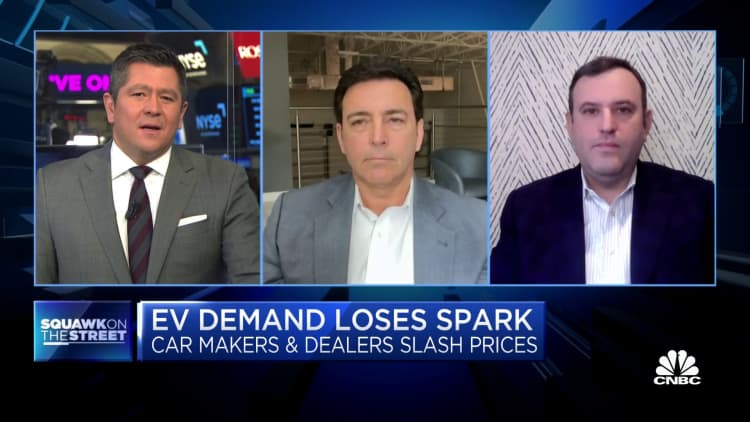Startup Li Auto is beating Tesla China’s EV sales

Chinese startup Li Auto sold more cars in October than Tesla’s China business did in October, according to the China Passenger Car Association.
Nurphoto | Getty Images
BEIJING — Chinese startup Li Auto sold more cars than Tesla’s China business did in October, according to the China Passenger Car Association.
The startup sold a record 40,422 cars in October, far more than Tesla did at 28,626, association data showed Thursday.
Li Auto also forecast it would keep delivering cars at a similar pace in the fourth quarter: Between 41,700 to 42,600 vehicles a month.
Unlike Tesla’s battery-only models, Li Auto’s vehicles — all SUVs — come with a fuel tank for charging the battery. That helps ease consumers’ concerns about driving range.
Li Auto plans to begin delivering its first battery-only model in February 2024, the MEGA multi-purpose vehicle. The company said it’s planning three more battery-only vehicles for launch in the second half of next year.
Li Auto’s cars currently sell for between 319,800 yuan ($43,910) to 459,800 yuan. The Model 3 and Model Y start at lower prices, 259,900 yuan and 263,900 yuan, respectively.
It’s unclear whether Li Auto will continue to sell more cars than Tesla going forward. In September, Tesla sold 43,507 cars while Li Auto sold 36,060, China Passenger Car Association data showed.

Li Auto vs Tesla
Li Auto on Thursday reported third-quarter earnings and revenue above FactSet estimates.
Unlike many local peers, the company has no immediate overseas expansion plans.
The startup, however, is looking at driver-assist tech as a way to compete in China’s hot electric car market.
The company plans to more than double the size of its research and development team for autonomous driving, from around 900 people to more than 2,500 by the end of 2025, President Donghui Ma said on an earnings call Thursday, according to a FactSet transcript.
